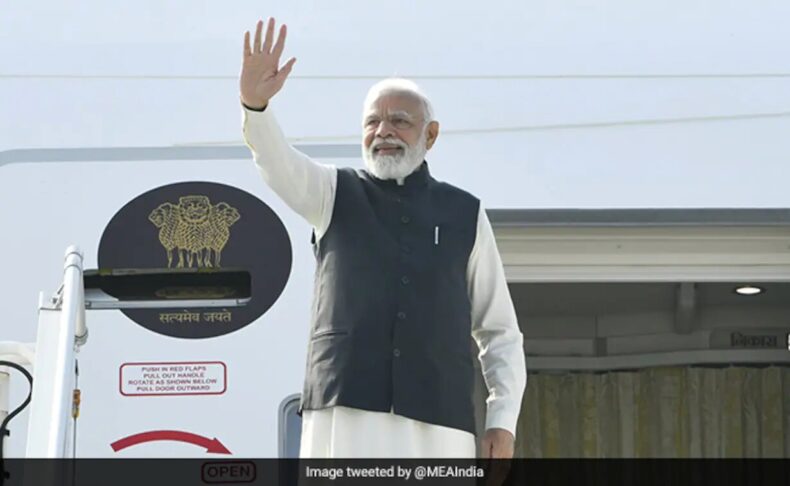On July 14, Prime Minister Narendra Modi will attend the inaugural I2U2 Leaders’ Summit, along with leaders from Israel, the United Arab Emirates, and the United States.
I2U2 aims to promote collaborative investments in six areas that have been mutually agreed upon, including space, health, water, energy, transportation, and food security.
According to a statement from the Ministry of External Affairs (MEA), Prime Minister Narendra Modi will attend an I2U2 Summit along with Israeli Prime Minister Yair Lapid, United Arab Emirates President Mohammed bin Zayed Al Nahyan, and US President Joseph R. Biden, among others.
The Foreign Ministers of these four countries previously met on October 18th, last year, during which the I2U2 Grouping was first conceived.
The MEA further stated that “each country also has fairly frequent sherpa-level engagement to explore the potential areas of cooperation.”
It aims to mobilize resources and expertise from the private sector to support the modernization of the infrastructure, the development of vital emerging green technologies, the improvement of public health, and the creation of low-carbon development pathways for our industries.
The group is identified as the “New Quad” or the “Middle-Eastern Quad” in the style of the Quadrilateral Security Dialogue (QSD).
The QSD which is also known as ‘Quad’ is a strategic discourse between Australia, India, Japan, and the United States.
The leaders will talk about potential collaborative projects within the I2U2 framework as well as other areas of shared interest for expanding trade and investment in the respective regions and elsewhere.
I2U2 Modi Initiative at a glance
Following the Abraham Accords between Israel and the UAE, I2U2 was constituted in October 2021 to address the maritime security, infrastructure, and transportation issues in the region.
It was originally called the “International Forum for Economic Cooperation.”
It was further referred as the “West Asian Quad”.
The letters ‘I2’ stands for India and Israel, while ‘U2’ stands for the United States and the United Arab Emirates.
This is an outstanding achievement that demonstrates the geopolitical changes taking place in the region.
In addition to reinvigorating and re-energizing the global alliance and partnership framework, this will also establish new alliances and partnerships that did not previously exist or were not effectively utilized.
As a result, the countries will be better able to examine how they can collaborate on security issues within the framework of these new alliances.
Since each of these countries also makes extensive use of biotechnology, this remains another matter of discussion among them.
These countries could collaborate in a variety of areas, including technology, trade, the environment, combating COVID-19, and even security.
Way Forward
India is anticipated to gain a great deal of benefit from this alliance.
India’s consumer market is massive. Additionally, it is a significant producer of high-tech products that are in great demand
These initiatives can offer opportunities to our businessmen and workers while serving as a model for economic cooperation.
India hopes to utilize the opportunity to attract private sector capital and expertise to help it modernize its infrastructure, develop new technologies that will reduce carbon emissions in Indian industries, and accelerate the development of critical emerging and green technologies.
The United States, on the other hand, will use the summit to rebrand itself as a global leader. It also intends to use the summit to position itself as an advocate for regional growth and development.
It also seeks to prevent China from gaining power in a region where the US has previously offered security and defense assistance. Using the Abraham Accords as a foundation, it also seeks to increase Israel’s favorability among its Gulf neighbors.












